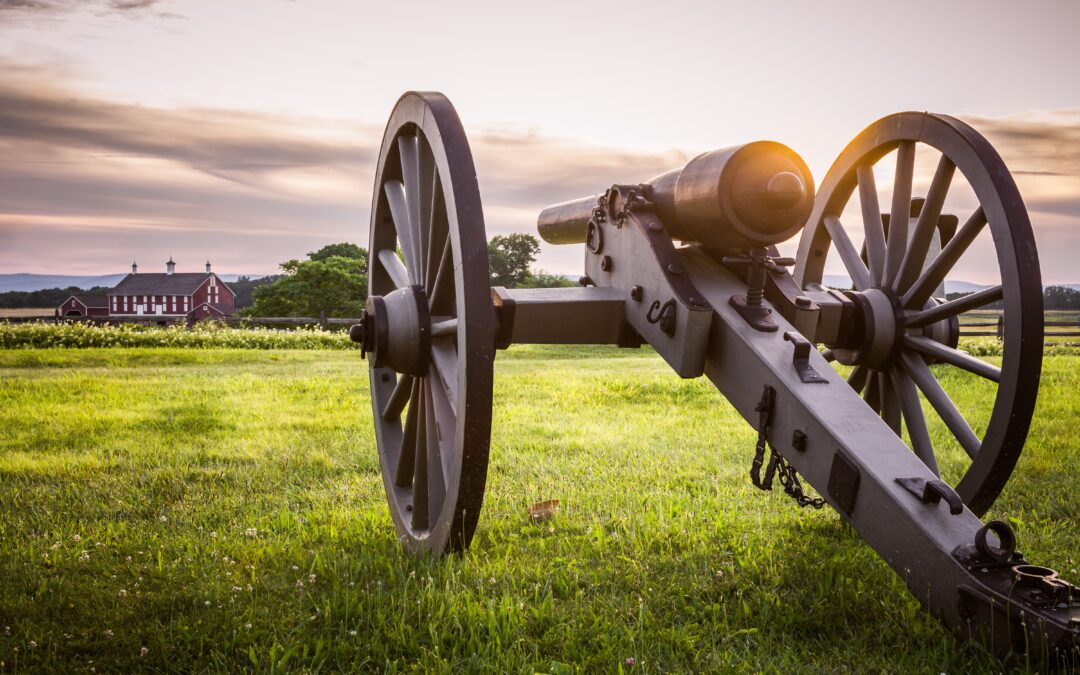Historical past has a humorous approach of popping up in essentially the most sudden locations, as college students on the College of Tennessee just lately found once they unintentionally found a U.S. Civil Battle website beneath their campus parking zone. Whereas it is not among the many most popular unsolved mysteries in history, the location may really reply just a few questions.
What began as a routine development mission to construct a brand new dormitory turned an thrilling archaeological expedition, unearthing remnants of a big Civil Battle trench system hiding in plain sight for over 150 years.
This exceptional discover provides one other chapter to the wealthy Civil Battle historical past of Knoxville, Tennessee, a southern city technically safe from hurricanes however nonetheless a significant website of the Civil Battle.
The invention not solely gives invaluable insights into army engineering and techniques of the interval but in addition provides a tangible connection to one of the pivotal moments in American historical past. Let’s look at how they uncovered such a well-hidden historic website.

Associated
This Eerie Spanish Ghost Town Is Now A Memorial To Its Civil War & It’s Worth A Visit
Belchite is now a strong reminder of the destruction and folly of conflict and is a superb place to go to to be taught in regards to the historical past of Spain.
Uncovering Reminiscences: The Website Of A Lengthy-Misplaced Battle
College students stumbled upon historic treasure whereas collaborating in state-mandated archaeological survey
Whereas Knoxville is one in every of the easiest places to retire in America, it is also house to an extended and storied previous. What started as a normal state-required archaeological survey for a brand new dormitory development mission shortly remodeled into an thrilling historic discovery.
Underneath the steerage of Assistant Professor Kandi Hollenbach from McClung Museum, college students performing the excavation accidentally discovered a U.S. Civil War site that expanded upon a beforehand identified trench system.
The invention got here with a number of exceptional artifacts, together with a Minié ball (a sort of Civil Battle-era bullet), pottery fragments, and proof of soldier campfires, portray a vivid image of army life throughout the 1863 Battle of Fort Sanders.
|
Discovering |
Significance |
|---|---|
|
Civil Battle Trench Part |
Expands understanding of Fort Sanders battle infrastructure |
|
Minié Ball |
Confirms lively army presence and potential battle |
|
Soldier Campfire Stays |
Supplies insights into each day army life throughout the interval |
Location Issues: The Strategic Significance Of Fort Sanders
Campus grounds reveal essential army place in Tennessee’s Civil Battle panorama
Historic forts, like the must-visit Saalburg Roman Fort in Germany, had been constructed for protection, and this discovery reveals how vital the placement was for these defensive constructions. The newly found trench part connects to Fort Sanders, a strategic stronghold that performed a pivotal position in Tennessee’s Civil Battle historical past.
The fort’s place was fastidiously chosen alongside a army crest, permitting troopers optimum visibility with out creating blind spots. This strategic placement proved essential throughout the November 1863 Battle of Fort Sanders, the place Union forces efficiently defended Knoxville towards Accomplice assaults, securing Union management over East Tennessee’s very important railroad infrastructure.
|
Army Crest Place |
Enhanced visibility and defensive capabilities |
|---|---|
|
Railroad Entry |
Management over essential provide and transport routes |
|
Geographical Location |
Protected pro-Union East Tennessee territory |

Associated
Fort Carroll: America’s Abandoned Artificial Island Fort
Fort Carroll, simply exterior Baltimore, Maryland, is an intriguing place that is off limits to the general public.
The Battle That Formed Knoxville
Twenty minutes of fight altered the course of East Tennessee’s Civil Battle story
Whereas this fort is not one of many most famous American war memorials worldwide, it nonetheless has a significant place in Knoxville’s historical past. In a remarkably transient however intense engagement, the Battle of Fort Sanders demonstrated the effectiveness of well-planned defensive positions.
The battle, lasting only 20 minutes, resulted in a decisive Union victory. This lopsided final result highlighted the fort’s superior defensive design and marked a turning level in sustaining Union management over Knoxville and its strategically very important railroad connections.
|
Length |
20 Minutes |
|---|---|
|
Accomplice Casualties |
800 troopers |
|
Union Casualties |
20 troopers |
Past The Battlefield: The Fort’s Prolonged Historical past
Archaeological proof reveals post-war transformation of army floor
The unintentional discovery of this U.S. Civil Battle website reveals extra than simply army historical past. The excavation uncovered artifacts from a number of time durations, together with remnants from the Melrose mansion, inbuilt 1858 and demolished within the Nineteen Forties. College students utilizing ground-penetrating radar recognized a cistern and electrical field plate from the mansion, alongside Civil Battle artifacts, demonstrating how the world remodeled from battlefield to residential property.
|
Civil Battle Period |
Trenches, Minié ball, soldier campfire stays |
|---|---|
|
1858-Nineteen Forties |
Melrose mansion artifacts, cistern stays |
|
Fashionable Interval |
Electrical infrastructure, parking zone development |

Associated
Here Are 10 Famed Roman Forts To See In England
Roman forts might be discovered throughout England – and notably within the hearts of the oldest English cities and within the north by Hadrian’s Wall.
The unintentional discovery of a U.S. Civil Battle website beneath a college parking zone serves as a strong reminder that historical past is not confined to textbooks and museums. This exceptional discover demonstrates how the previous actually lies beneath our ft, ready to be uncovered.
The mission has remodeled a easy development website right into a dwelling classroom, the place college students do not simply research historical past – they unearth it. As Professor Hollenbach aptly famous, hundreds of years of historical past exist below our ft daily, making each step on campus a possible journey by way of time.



Recent Comments